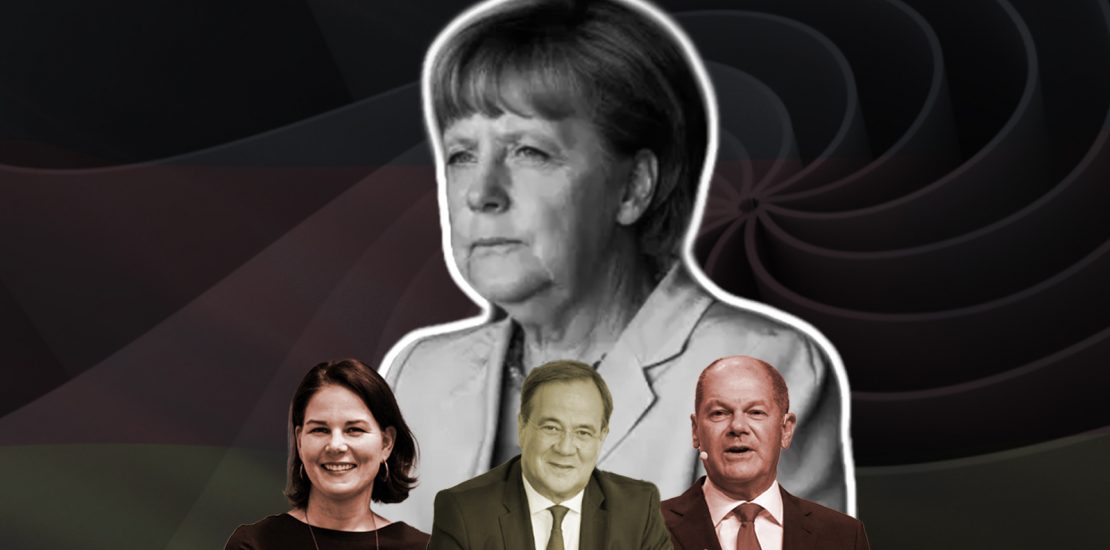- September 23, 2021
- Posted by: lutherpendragon
- Categories: insight, news

Insights from Luther Pendragon and Vom Hoff on the German election and what it means for the UK.
To read Luther Pendragon’s full Insights Report on the election, or to discuss your public affairs requirements, contact Luther’s Head of Public Affairs, Adam Thomas: publicaffairs@luther.co.uk
The German federal election taking place in just a few days’ time, on September 26th, will be the most significant in a generation. The era of Angela Merkel, an unrivalled powerhouse of European and global politics, is coming to an end after 16 years. The polls remain tight, and the election is all to play for. It raises big questions about Germany’s and Europe’s future, and the UK’s relationship with them. Can anyone fill the void Merkel leaves at the centre of Europe? Will Germany maintain its stability as its political landscape fractures? What challenges and opportunities does this present for the UK?
Several major policy areas are at a turning point in Germany, whether it’s the climate, COVID-19, relationships with Russia, China and the US, the future of the EU, or what type of economy Germany is going to be in the coming decades. Merkel leaves behind a country in need of orientation at the beginning of a fundamental transformation.
One of the most important goals is greenhouse gas neutrality by 2045, but the path to achieving it has not yet been defined. As the UK gears up to host the critical COP26 climate summit in November, Europe’s biggest economy is still grappling with its environmental policies. With the election result up in the air, it is far from certain that Germany will be a helpful partner to the UK in gaining the climate agreements it seeks.
The election is also one of the most surprising and unpredictable in recent history. With Merkel’s CDU/CSU struggling to define what it stands for the wake of her chancellorship, it has lost ground to its social democratic rival, the SPD. Merkel’s successor as party leader, Armin Laschet, was a shoo-in for Chancellor just weeks ago. But he now looks set to be relegated to a humiliating second place behind the SPD’s Olaf Scholz, the current finance minister in Merkel’s government.
As support for Germany’s mainstream parties ebbs away, the election may also end in paralysis, with a messy three-way coalition deal taking weeks or even months to finalise. With the UK relying on a strong and decisive Germany in the months and years ahead, this uncertainty will pose a serious challenge to a hoped-for reset of the beleaguered relationship with Germany in the wake of Brexit.
Despite the evident challenges, this election, the first change at the top of a European bi-lateral partner for the UK since Brexit, could yet be positive opportunity for the UK to reset the relationship and exert fresh influence over the EU.
All the major parties in Germany desire a close partnership between the UK, the EU and Germany in the future. Furthermore, the CDU/CSU want close cooperation in internal and external security and science. They wish to appoint a UK coordinator from the federal government to bundle bilateral relations. Nevertheless, as the UK’s foreign policy agenda tilts eastwards, opportunities for greater bi-lateral cooperation between Germany and UK are becoming harder to ascertain.
While Merkel would have preferred a seamless transition to a continuity leader moulded in her image, German politics are likely to change markedly in the aftermath of her leadership. She leaves a political landscape that is fractured, unstable and has failed to grapple with major policy issues. The UK must take note.
However, this does not mean that friends and partners around the world should expect fundamental changes in German policy. This applies particularly to foreign and security policy, as well as European policy.
Whilst its precise makeup is unclear, a new German government is likely to provide fresh impetus in the areas of environmental, climate and energy policy. This project will continue to be a priority for the future federal government, and there is an opportunity for the UK to leverage this impetus to its advantage at COP26.
Nevertheless, the UK is looking to Germany to lead at the centre of Europe at a time when its role is being put under significant strain. Whilst the UK wants to reset relationships on the continent, the question of precisely what kind of partner Germany will be, and how it will view a post-Brexit Britain, remains unanswered. Whether it is Scholz or Laschet at the helm, a period of political wrangling and stagnation could see Germany’s leading role in Europe slip away. The UK must be prepared.
